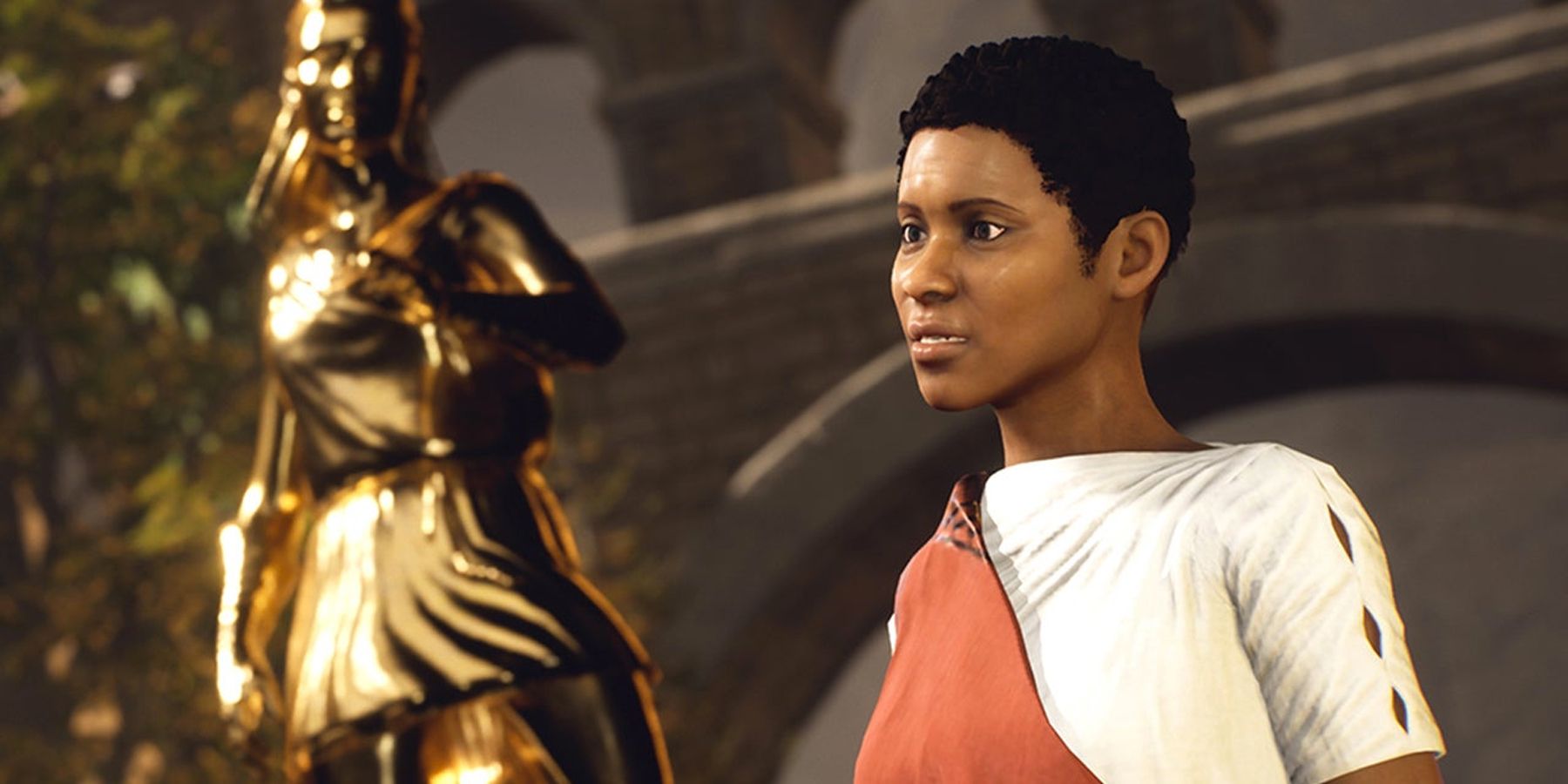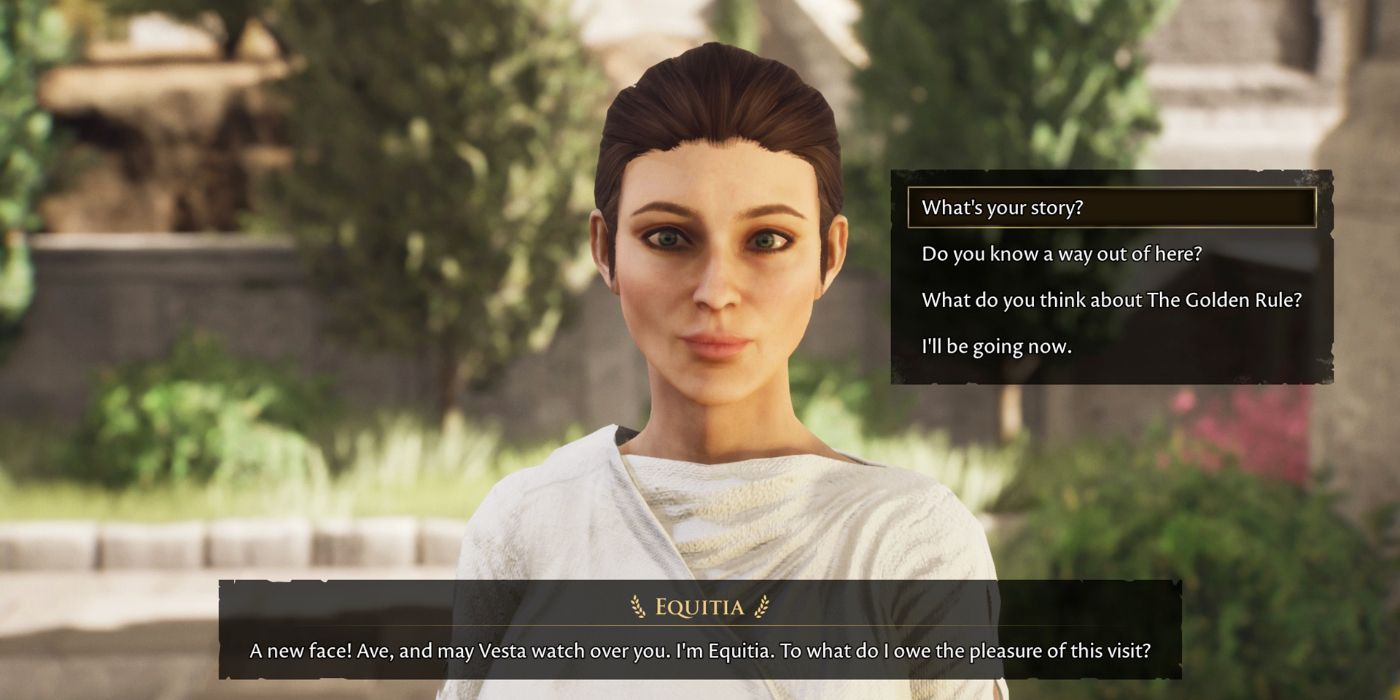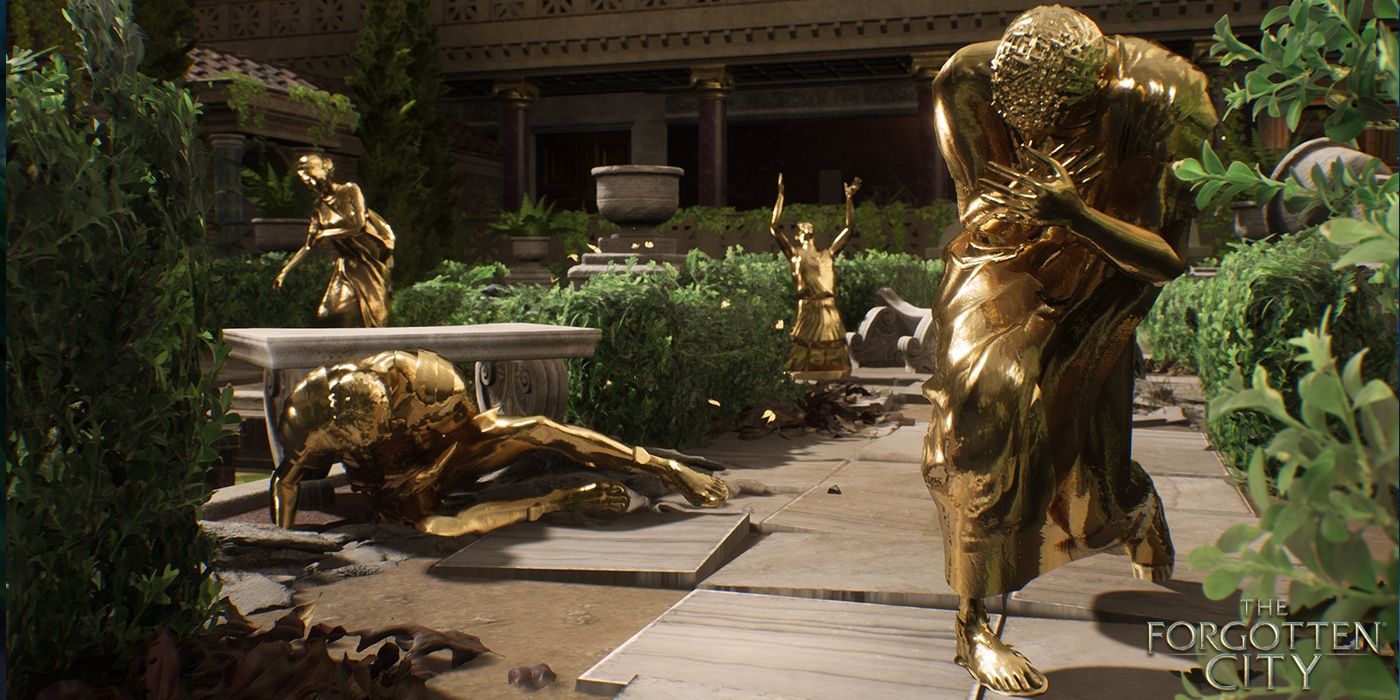The true potential of video games based around being stuck in a time loop was first explored in a major way with The Legend of Zelda: Majora's Mask back in 2000. Now, 21 years later, the premise is a fairly common one to find in games of all types. Fans of shooters will have Deathloop when it releases, while roguelike fans have Returnal. Adventure titles with time loops seem to narratively resonate with players much more, as they ask the player what they would do if you were stuck with no way out - a question asked by two games as of late, 12 Minutes and The Forgotten City. Where 12 Minutes fumbles, however, The Forgotten City soars and ultimately gets the idea of the time loop correct in a way that few others have.
The award-winning Skyrim mod The Forgotten City places the player in a Roman city where everyone is turned to gold if any of the 22 residents commits a sin. If that happens, the player is forced to restart the day and try once more to break everyone free from the curse that hangs over their heads. Although some games give the player a set amount of time before the loop resets like in 12 Minutes, the player quickly realizes that things won't reset at random like they're initially made to believe; the Forgotten City loop only ever restarts when the player chooses to sin and trigger the reset.
Understanding the Appeal of the Time Loop
Because the player gets to choose when they want everything to go back to how it was when they first arrived in the city, it allows them to follow any given plot thread as long as they like, only resetting when necessary. While it doesn't create the same level of dread and urgency that the ticking time element from 12 Minutes creates, it avoids the frustration of the player getting so close to discovering the next twist of the mystery only to be reset and have to try again during a crucial moment.
By giving the player the power to reset things, they get to experiment as much as they like, only starting over when they feel like they've exhausted all of their current options in that particular loop. Curiosity doesn't have to end when the loop ends, however, as most times that things are reset in The Forgotten City, the player has a good understanding of what should come next.
The Forgotten City's Respect for the Player's Time
In most reviews for The Forgotten City, very rarely does the writer express that they felt lost about what's meant to happen next. This is because the game does a great job at guiding the player to what their next options are without making them feel like the game is playing itself. There are so many storylines to follow throughout the game that each time a loop happens, it's because it's needed to advance one of the many stories that are woven throughout the narrative. Unlike the sometimes obtuse nature of puzzles in other comparable adventure games like 12 Minutes, The Forgotten City requires the player to engage with it and think critically about what needs to happen next instead of wandering aimlessly using each available puzzle item on everything in the vicinity.
There's very little frustration in the game as a resultand players usually walk away from the experience feeling accomplished and smart as puzzle solutions are straightforward without being obvious. The Forgotten City walks the delicate line of wanting to tell a narrative that explores some of the horrifying truths of what a time loop would actually be like while still offering a puzzle game that requires critical thought from the player. At the end of the day, it succeeds because it gives the player as much agency in the story as it gives them in the puzzles.
The Forgotten City is available now on PC, PlayStation 4, PlayStation 5, Xbox One, and Xbox Series X/S.



